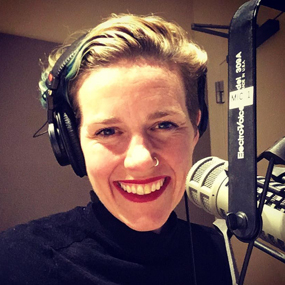

Join BirdNote tomorrow, November 30th!
Illustrator David Sibley and actor H. Jon Benjamin will face off in the bird illustration battle of the century during BirdNote's Year-end Celebration and Auction!
The 2020 wildfire season burned more than 8 million acres in the West, including some of the most important habitat for the Greater Sage-Grouse in Washington State. Ashley Ahearn visited a lek she’d seen in the spring with biologist Michael Schroeder to understand the scope of the damage. But despite the massive challenges, Schroeder isn’t going to retire now — he says he doesn’t want to go out on a down note.
Hear more about Michael Schroeder and the Greater Sage-Grouse in our series Grouse.
BirdNote®
Grouse After Fire
Written by Ashley Ahearn
This is BirdNote.
I’d been working on a story about the Greater Sage-Grouse for over a year when wildfires broke out across the West. In Washington State, the Cold Springs and Pearl Hill Fires burned several hundred thousand acres in sage-grouse country. So I met up with biologist Michael Schroeder to see how things looked. He’s been studying the birds here for decades.
He took me to the Mary Jane Hill lek, or mating site. What used to be healthy sagebrush had been transformed into blackened dirt, as far as the eye could see.
Michael: But this was the largest lek in the county. And it's right in the middle of oblivion. Or Mordor, as somebody referred to it, from the Lord of the Rings.
Fire’s a part of this ecosystem, Michael told me…
Michael: But, but the reality is, this country is not used to fires of this scale. And these birds who are restricted to fairly isolated populations are not able to deal with fires of this scale because the scale is so large. They don't have any other options. They don't have any other places to go.
There are fewer than 1000 sage-grouse left in Washington State, and Schroeder estimates we may have lost half the birds to fire this year. He and other biologists will continue to check sage-grouse leks in the spring to see how the population fared, but he says things look bleak.
Schroeder jokes about being ready to retire, but he told me he’s not going to do that right now. Because, he said, he doesn’t want to go out on a down note.
You can hear more about the Greater Sage-Grouse and the challenges they face on our new series Grouse. Subscribe to BirdNote Presents in your podcast app, or go to BirdNote.org. I’m Ashley Ahearn.
###
Producer: John Kessler
Production Manager: Allison Wilson
Editor: Ashley Ahearn
Producer: Mark Bramhill
Associate Producer: Ellen Blackstone
Field Recordings by Ashley Ahearn
BirdNote’s theme was composed and played by Nancy Rumbel and John Kessler.
© 2020 BirdNote November 2020 Narrator: Ashley Ahearn
ID# GRSG-10-2020-11-3 GRSG-10




